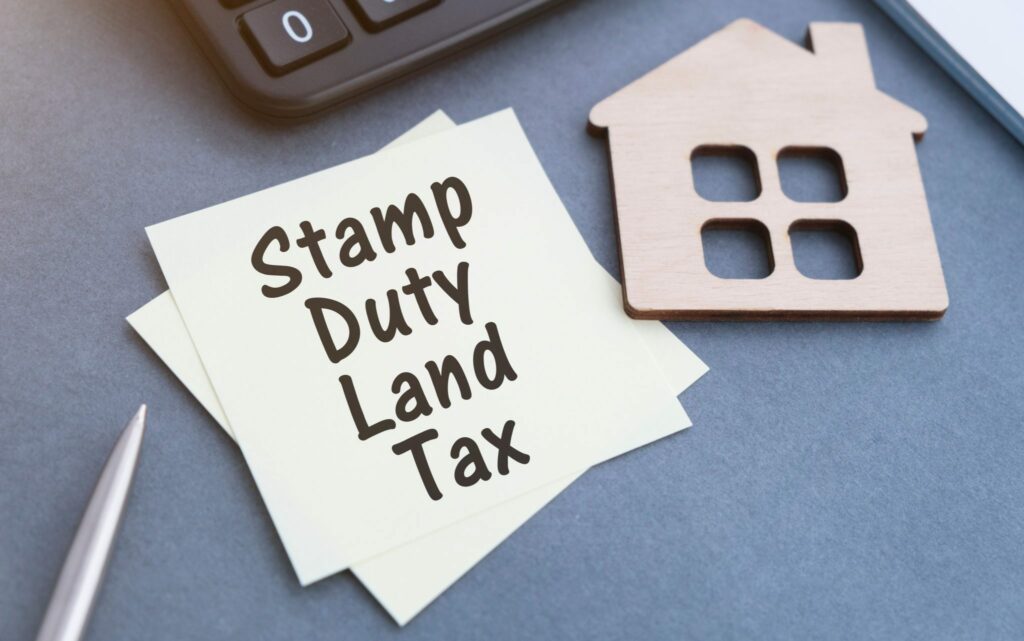Development & Housing
Our Real Estate team pride themselves on being experts in the field of land, development and construction.
Development Lawyers
Our Real Estate team at pride themselves on being experts in the field of land, development and construction.
Our wide ranging expertise means that we are able to assist with the full spectrum of legal disciplines in this area, including:
- Drafting and negotiating the full raft of development agreements including option agreements, conditional contracts and overage agreements.
- Drafting / negotiating applicable documents on construction projects
- Infrastructure and planning agreements – liaising with statutory undertakers and local authorities
- Joint ventures and advising on associated documents such as collaboration agreements.
- Lender and legal requirements in respect of development finance.
- Plot sales, including the preparation of master legal documentation and comprehensive sales packs.
- Transaction structure – including considering the suitability of a land purchase vs corporate purchase where a company owns the target development land.
- Site assembly projects including strategic land agreements.

Strategic Land Agreements
Our Property team have expert knowledge and extensive experience of dealing with strategic land transactions (acting for both landowner or developer) and therefore are perfectly placed to help you with the sale or purchase of land for development under a long term strategic arrangement.
We regularly act for developers and landowners on both large and small scale strategic development agreements to allow sites to be successfully promoted through the local planning framework and achieve planning consent for residential development.
There are different forms that a ‘strategic land agreement’ can take, including:
Option Agreement: with a variable purchase price which could be based on either:
- A percentage of the market value of the land once planning consent has been obtained
- A fixed sum per Developable Acre of land
- A fixed sum per residential unit (to be constructed on the land)
Promotion Agreement: where an experienced developer or land promoter promotes land for development (and secures planning consent) and then the land is sold on the open market and the promoter and land owner share in the sales proceeds.
Collaboration Agreement / Joint Ventures: where two or more landowners or developers work together with achieve a larger scale development by including various parcels of land in the site for development. This will often involve an equalisation provision between the parties so that all parties receive an appropriate percentage of the total sales prices equal to the size of the land which they are bringing to the collaboration.
Or it may be that an arrangement is an amalgamation of some or all of the above!
By their very nature strategic land agreements will be bespoke to the terms agreed between the parties and therefore it requires a full understanding of the potential issues and ways to resolve these; which our specialists are able to provide.
In addition to the form of agreement itself, there are also other things to consider when dealing with such specialist agreements and arrangements, including Overage Arrangements.
Selling Land for Development
Our team has a wealth of experience in negotiating development agreements effectively and efficiently ensuring that you are fully protected whilst allowing the development to proceed quickly.
As you will only get one chance to sell your land for development it is important to instruct a firm with sufficient expertise in the area to give you proper advice.
We offer a full range of services for landowners which include:
- negotiating Option Agreements
- negotiating Conditional Contracts
- drafting Planning Agreements
- Due Diligence Services
- negotiating and drafting Joint Ventures and other Collaboration Agreements
- negotiating Overage Arrangements
There are many pitfalls in selling land for development. Whether you have already obtained planning permission or whether you wish a developer to do this for you, we would strongly recommend that you come to see us at an early stage so that you know and understand the options available to you to best realise the value of your asset.
Option Agreements
An option agreement grants the developer a right to purchase the property once planning permission has been obtained.
This is not the same as an obligation on the developer to purchase the property once planning has been obtained (see conditional contract).
The developer should be placed under an obligation to obtain planning permission and this obligation needs to be carefully worded to ensure that he performs that obligation. The option should exist for a limited period of time which would be negotiated taking into account the time it is likely to take for planning permission to be obtained. The developer would normally contribute towards your legal and agent’s expenses in relation to the negotiation and exchange of the option agreement. It is likely that you will require to enter a planning agreement.
You need to bear in mind that, although not impossible, it is difficult to sell your property whilst an option exists over it. The price is likely to be a fixed sum, although it might be index-linked, or a percentage of market value. It could include overage arrangements. Care needs to be taken to ensure that you have the right to use the drawings, reports etc prepared by the developer if it decides not to purchase your property.
Joint Ventures
A joint venture is where two or more companies decide that they want to work together on a particular project.
These can take many forms but basically, they leave you involved some way in the planning and/or development process.
This might mean that you contribute to the cost of obtaining planning permission and the development and, as a result, of your land ownership then become entitled to a larger share of the profits (assuming there are any). It could be a profit sharing agreement where the Developer obtains planning permission and carries out the development on your land with the result that any profit is shared. Or it can be any combination of the two. Tax advice from your Accountant is vital.
Overage Arrangements
Overage is a sum of money which may be due to a landowner after completion of any sale of the property.
Overage may be due when the developer obtains either a planning permission (if the land is sold without planning permission) or an additional/further planning permission (if the land is sold with planning permission) and the overage due would be based on the difference in the value of the land with or without planning permission (or additional/further planning permission, as appropriate). It is also becoming increasingly common that overage is effectively a profit sharing arrangement between a landowner and a developer and payable once a developer has realised a profit on the development.
There are likely to be tax consequences for overage arrangements.
The wording of overage arrangements can be very complex and it is important that expert legal advice is obtained in ensuring that the overage arrangements reflect the intentions of the parties and that most importantly the developer is obliged to pay the overage to you!
Conditional Contracts
This is similar to an option agreement but there are significant differences.
Unlike an Option Agreement, a Conditional Contract becomes binding on the parties when a satisfactory planning permission is achieved. Because of this, it is likely that a Developer will want to impose a set of adverse conditions which, if imposed in a planning permission, would entitle the developer to claim that the planning permission is not satisfactory and walk away from the deal. Care and attention, based on experience of property developments, are essential for the drafting of adverse conditions. The position with regard to price, legal fees, the developers planning obligations planning agreements and overage arrangements together with the difficulty of selling your property elsewhere are similar to those for option agreements.
Planning Agreements
Under Section 106 of the Town and Country Planning Act 1990 as amended, local authorities can require land owners and developers wishing to undertake development within their area to enter into certain planning obligations.
These obligations could include financial obligations to local infrastructure projects, contributions to local education and other services. The obligation could extend to the provision of social housing. It is legitimate for a local authority to refuse planning in the event that the Planning Agreement has not been entered into. It is important to note that anybody with an interest in the land will be required to enter into a Planning Agreement and this includes mortgages. A Planning Agreement can be entered into with the local authority or can be more simply signed by the developer and land owner and presented to the local authority. The latter is known as Unilateral Undertaking.
Planning Agreements should not be entered into by land owners without legal advice. The obligations are given by the land owners and the obligations are enforceable against them by the local authority.
Plot Sales
The plot sales team at Herrington Carmichael is an integral part of our real estate offering, with our lawyers specialising in residential development and strategic land acquisitions. This enables us to ensure our expertise can be fully utilised to help our clients capitalise quickly on the full value of their development sites and generate cash for onward investment.
Our expertise includes:
- Preparation of a full site pack in respect of the development in anticipation of the plot sales.
- Drafting bespoke contracts, transfers and leases on developments of all sizes and types, whether for a large site or for a smaller luxury development.
- Creation of standard information packs tailored for each development to ensure the sales pack is purchaser friendly and enquiries and amendments can be kept to a minimum.
- Setting up management companies for the common parts of the development.
- Assisting with road and sewer agreements, where needed, together with any deeds of easement.
- Dealing with part exchange and resales within the same team to ensure that both aspects of the transaction can be achieved as swiftly as possible.
- Acting for housebuilders selling to registered providers and understanding of the affordable housing sector.
- Weekly (or more frequently, if required) sales updates to our clients and the agents involved on all key stages of the plot sales process.
Property & Land Disputes
We have a dedicated team of dispute lawyers with a range of expertise and experience dealing with property & construction disputes.
We advise on a wide range of land disputes acting for developers, property investors, landowners, tenants, neighbours, professional advisors and other individuals. Our expertise in all forms of Dispute Resolution makes us well placed to advise on complex and high value cases to the more modest claims.
We represent clients in the courts, property tribunals, in adjudication and use alternative dispute resolution procedures, including mediation, to resolve disputes. We understand your concerns to avoid the expense and distraction that disputes can bring and we will work with you to find a solution to your problem.
- Adverse Possession claims
- Commercial Landlord & Tenant disputes
- Construction Disputes – loss and delay
- Disputes concerning overage and option agreements
- Development Site Disputes
- Easements, rights of way and other impediments to land development
- Party wall disputes
- Professional Negligence claims against professionals throughout the strategic land acquisition and development processes
- Residential Landlord & Tenant disputes
- Restrictive Covenants
- Title and boundary disputes
Construction
Our construction lawyers are able to act for parties involved in real estate residential developments including landowners, developers and funders and can provide tailored legal solutions to guide them through the entire project.
Our significant experience in drafting and negotiating construction agreements allows us to anticipate and get a grasp on potential challenges early on and find solutions that are both practical and commercial.
As a full-service firm, Herington Carmichael is best placed to support you throughout the entire residential development process, whichever capacity you are acting in. Our dedicated property law team regularly draft, negotiate and advise on the full raft of development agreements including option agreements, conditional contracts and overage agreements. The construction team can subsequently advise on all aspects of construction contracts and relevant documentation to ensure that the project is moving forward and in the right direction. Together, our collaborative approach and strong commercial sense can give you peace of mind that we have the know-how and resources to advise you fully.
A few of our recent residential development projects include:
- Advising a developer on a block of residential flats with a build cost in excess of £10,000,000, to include advice on the latest high-rise building laws.
- Advising a local property developer on a building contract with its contractor for the building, development and eventual sale of a single plot worth in the region of £13million.
- Advising a leading bank on the construction aspects (including main building contracts and collateral warranties) of its lend in respect of the development of a single plot worth in the region of £16million.
- Helping a leading property developer on a building and development contract for multiple plots worth in excess of £1,000,000.
Strategic Land Agreements
Our Property team have expert knowledge and extensive experience of dealing with strategic land transactions (acting for both landowner or developer) and therefore are perfectly placed to help you with the sale or purchase of land for development under a long term strategic arrangement.
We regularly act for developers and landowners on both large and small scale strategic development agreements to allow sites to be successfully promoted through the local planning framework and achieve planning consent for residential development.
There are different forms that a ‘strategic land agreement’ can take, including:
Option Agreement: with a variable purchase price which could be based on either:
- A percentage of the market value of the land once planning consent has been obtained
- A fixed sum per Developable Acre of land
- A fixed sum per residential unit (to be constructed on the land)
Promotion Agreement: where an experienced developer or land promoter promotes land for development (and secures planning consent) and then the land is sold on the open market and the promoter and land owner share in the sales proceeds.
Collaboration Agreement / Joint Ventures: where two or more landowners or developers work together with achieve a larger scale development by including various parcels of land in the site for development. This will often involve an equalisation provision between the parties so that all parties receive an appropriate percentage of the total sales prices equal to the size of the land which they are bringing to the collaboration.
Or it may be that an arrangement is an amalgamation of some or all of the above!
By their very nature strategic land agreements will be bespoke to the terms agreed between the parties and therefore it requires a full understanding of the potential issues and ways to resolve these; which our specialists are able to provide.
In addition to the form of agreement itself, there are also other things to consider when dealing with such specialist agreements and arrangements, including Overage Arrangements.
Selling Land for Development
Our team has a wealth of experience in negotiating development agreements effectively and efficiently ensuring that you are fully protected whilst allowing the development to proceed quickly.
As you will only get one chance to sell your land for development it is important to instruct a firm with sufficient expertise in the area to give you proper advice.
We offer a full range of services for landowners which include:
- negotiating Option Agreements
- negotiating Conditional Contracts
- drafting Planning Agreements
- Due Diligence Services
- negotiating and drafting Joint Ventures and other Collaboration Agreements
- negotiating Overage Arrangements
There are many pitfalls in selling land for development. Whether you have already obtained planning permission or whether you wish a developer to do this for you, we would strongly recommend that you come to see us at an early stage so that you know and understand the options available to you to best realise the value of your asset.
Option Agreements
An option agreement grants the developer a right to purchase the property once planning permission has been obtained.
This is not the same as an obligation on the developer to purchase the property once planning has been obtained (see conditional contract).
The developer should be placed under an obligation to obtain planning permission and this obligation needs to be carefully worded to ensure that he performs that obligation. The option should exist for a limited period of time which would be negotiated taking into account the time it is likely to take for planning permission to be obtained. The developer would normally contribute towards your legal and agent’s expenses in relation to the negotiation and exchange of the option agreement. It is likely that you will require to enter a planning agreement.
You need to bear in mind that, although not impossible, it is difficult to sell your property whilst an option exists over it. The price is likely to be a fixed sum, although it might be index-linked, or a percentage of market value. It could include overage arrangements. Care needs to be taken to ensure that you have the right to use the drawings, reports etc prepared by the developer if it decides not to purchase your property.
Joint Ventures
A joint venture is where two or more companies decide that they want to work together on a particular project.
These can take many forms but basically, they leave you involved some way in the planning and/or development process.
This might mean that you contribute to the cost of obtaining planning permission and the development and, as a result, of your land ownership then become entitled to a larger share of the profits (assuming there are any). It could be a profit sharing agreement where the Developer obtains planning permission and carries out the development on your land with the result that any profit is shared. Or it can be any combination of the two. Tax advice from your Accountant is vital.
Overage Arrangements
Overage is a sum of money which may be due to a landowner after completion of any sale of the property.
Overage may be due when the developer obtains either a planning permission (if the land is sold without planning permission) or an additional/further planning permission (if the land is sold with planning permission) and the overage due would be based on the difference in the value of the land with or without planning permission (or additional/further planning permission, as appropriate). It is also becoming increasingly common that overage is effectively a profit sharing arrangement between a landowner and a developer and payable once a developer has realised a profit on the development.
There are likely to be tax consequences for overage arrangements.
The wording of overage arrangements can be very complex and it is important that expert legal advice is obtained in ensuring that the overage arrangements reflect the intentions of the parties and that most importantly the developer is obliged to pay the overage to you!
Conditional Contracts
This is similar to an option agreement but there are significant differences.
Unlike an Option Agreement, a Conditional Contract becomes binding on the parties when a satisfactory planning permission is achieved. Because of this, it is likely that a Developer will want to impose a set of adverse conditions which, if imposed in a planning permission, would entitle the developer to claim that the planning permission is not satisfactory and walk away from the deal. Care and attention, based on experience of property developments, are essential for the drafting of adverse conditions. The position with regard to price, legal fees, the developers planning obligations planning agreements and overage arrangements together with the difficulty of selling your property elsewhere are similar to those for option agreements.
Planning Agreements
Under Section 106 of the Town and Country Planning Act 1990 as amended, local authorities can require land owners and developers wishing to undertake development within their area to enter into certain planning obligations.
These obligations could include financial obligations to local infrastructure projects, contributions to local education and other services. The obligation could extend to the provision of social housing. It is legitimate for a local authority to refuse planning in the event that the Planning Agreement has not been entered into. It is important to note that anybody with an interest in the land will be required to enter into a Planning Agreement and this includes mortgages. A Planning Agreement can be entered into with the local authority or can be more simply signed by the developer and land owner and presented to the local authority. The latter is known as Unilateral Undertaking.
Planning Agreements should not be entered into by land owners without legal advice. The obligations are given by the land owners and the obligations are enforceable against them by the local authority.
Plot Sales
The plot sales team at Herrington Carmichael is an integral part of our real estate offering, with our lawyers specialising in residential development and strategic land acquisitions. This enables us to ensure our expertise can be fully utilised to help our clients capitalise quickly on the full value of their development sites and generate cash for onward investment.
Our expertise includes:
- Preparation of a full site pack in respect of the development in anticipation of the plot sales.
- Drafting bespoke contracts, transfers and leases on developments of all sizes and types, whether for a large site or for a smaller luxury development.
- Creation of standard information packs tailored for each development to ensure the sales pack is purchaser friendly and enquiries and amendments can be kept to a minimum.
- Setting up management companies for the common parts of the development.
- Assisting with road and sewer agreements, where needed, together with any deeds of easement.
- Dealing with part exchange and resales within the same team to ensure that both aspects of the transaction can be achieved as swiftly as possible.
- Acting for housebuilders selling to registered providers and understanding of the affordable housing sector.
- Weekly (or more frequently, if required) sales updates to our clients and the agents involved on all key stages of the plot sales process.
Property & Land Disputes
We have a dedicated team of dispute lawyers with a range of expertise and experience dealing with property & construction disputes.
We advise on a wide range of land disputes acting for developers, property investors, landowners, tenants, neighbours, professional advisors and other individuals. Our expertise in all forms of Dispute Resolution makes us well placed to advise on complex and high value cases to the more modest claims.
We represent clients in the courts, property tribunals, in adjudication and use alternative dispute resolution procedures, including mediation, to resolve disputes. We understand your concerns to avoid the expense and distraction that disputes can bring and we will work with you to find a solution to your problem.
- Adverse Possession claims
- Commercial Landlord & Tenant disputes
- Construction Disputes – loss and delay
- Disputes concerning overage and option agreements
- Development Site Disputes
- Easements, rights of way and other impediments to land development
- Party wall disputes
- Professional Negligence claims against professionals throughout the strategic land acquisition and development processes
- Residential Landlord & Tenant disputes
- Restrictive Covenants
- Title and boundary disputes
Construction
Our construction lawyers are able to act for parties involved in real estate residential developments including landowners, developers and funders and can provide tailored legal solutions to guide them through the entire project.
Our significant experience in drafting and negotiating construction agreements allows us to anticipate and get a grasp on potential challenges early on and find solutions that are both practical and commercial.
As a full-service firm, Herington Carmichael is best placed to support you throughout the entire residential development process, whichever capacity you are acting in. Our dedicated property law team regularly draft, negotiate and advise on the full raft of development agreements including option agreements, conditional contracts and overage agreements. The construction team can subsequently advise on all aspects of construction contracts and relevant documentation to ensure that the project is moving forward and in the right direction. Together, our collaborative approach and strong commercial sense can give you peace of mind that we have the know-how and resources to advise you fully.
A few of our recent residential development projects include:
- Advising a developer on a block of residential flats with a build cost in excess of £10,000,000, to include advice on the latest high-rise building laws.
- Advising a local property developer on a building contract with its contractor for the building, development and eventual sale of a single plot worth in the region of £13million.
- Advising a leading bank on the construction aspects (including main building contracts and collateral warranties) of its lend in respect of the development of a single plot worth in the region of £16million.
- Helping a leading property developer on a building and development contract for multiple plots worth in excess of £1,000,000.
FAQs
What is a development agreement?
A development agreement is a contract that specifies the obligations, responsibilities, and requirements of the parties involved in a development project. It typically includes details about land use, timelines, financial considerations, and other relevant terms.
Are there any legal rules on what terms I should put in my construction contract?
Yes. If you have a construction contract, there are a number of specific clauses you need to have in your contract, failing which the law will imply terms to fill the relevant gaps. These relate to crucial terms such as payment provisions and therefore it is imperative you get these correct in your contract or the law may imply them for you.
Can I sign a JCT or NEC in their existing formats and will they adequately protect me?
Whilst the standard form contracts do contain a number of important provisions and are generally considered to be drafted in a reasonably balanced way, there are a number of areas which can be updated to provide enhanced protections or improve your position.
In addition, the contracts in their existing formats may not deal with certain areas sufficiently and therefore for most projects, some form of amendment to the standard form contracts is desirable.
Will the Building Safety Act and the other new laws have a bearing on my project?
The BSA will have a huge impact in terms of how a project progresses from inception to construction to occupation. It imposes new safety regulations and provisions in respect of oversight and accountability which affects the design, construction, and management of a build and will therefore affect multiple stakeholders – some of its provisions also apply to all properties, so it is crucial that you seek advice on whether and how the laws affect your project.
It is also important that the right appointments have been made and that all of the new obligations have been contractually apportioned between those mentioned in the project.
Will the funding arrangement impact the project?
Where a funder is involved on any project it is crucial firstly that you are comfortable with the terms on which they are offering the funding. In respect of the project itself, you will need to ensure that all contracts on the project are drafted in a way which is compliant with the requirements of the funding agreement. For instance, they need to ensure you can procure that the rights collateral warranties are provided and any stipulations for the contracts are adhered to. Similarly, if the funding agreement imposes a duty or obligation on you, it may be appropriate to flow this down to your contractors. We can give peace of mind by undertaking all of these activities on your behalf. We have seen all manner of different funding arrangements and are familiar with all of the common stipulations (and many of the unusual ones).
Recent Work
£27.5m Development Site
Acted on behalf of a leading UK-based regional developer on its £27.5 million purchase of a development site with outline planning permission for 248 houses in Mytchett, Surrey, with a developed value of circa £80 million. The transaction was highly complex, relating to a large area of land including numerous titles and contamination-related issues. The transaction also required our team to act on a complex S.106 Agreement which included the SANGS and structured payments for the enlargement of a local free school and independent nursery with six parties to the agreement. We acted for the developer in securing the land and development financing of £12 million to allow for the acquisition of the property. Following completion on the grant of the reserved matters planning permission, the site was re-mortgaged with a £25 million development loan
Land Acquisition for 275 houses
The acquisition of land for two national developers of a development site in Alton, Hampshire for 275 houses.
We acted for the developers in respect of the negotiation of the option agreement approximately four years before the planning permission was achieved and the land acquired. We also acted on a collaboration agreement for the two developers and the infrastructure agreements to allow the development to be constructed.
Long-term site option
Acted on behalf of a leading UK-based regional developer on its £27.5 million purchase of a development site with outline planning permission for 248 houses in Mytchett, Surrey, with a developed value of circa £80 million. The transaction was highly complex, relating to a large area of land including numerous titles and contamination-related issues. The transaction also required our team to act on a complex S.106 Agreement which included the SANGS and structured payments for the enlargement of a local free school and independent nursery with six parties to the agreement. We acted for the developer in securing the land and development financing of £12 million to allow for the acquisition of the property. Following completion on the grant of the reserved matters planning permission, the site was re-mortgaged with a £25 million development loan
Farm Landowner
We are also acting for a farmer landowner near Guildford, Surrey, who has entered into a long term option agreement with a developer, who has recently achieved planning permission for 240 houses. This will be a major development and we are currently actively involved with the landowner ensuring that they receive all the necessary advice and the matter is brought to a successful conclusion.
Development & Housing Insight
Meet the Team
Best Law Firms 2024
Herrington Carmichael has once again been named in the Times Best Law Firms. We were first listed in 2023 and have once again made the Best Law Firms list for 2024.













